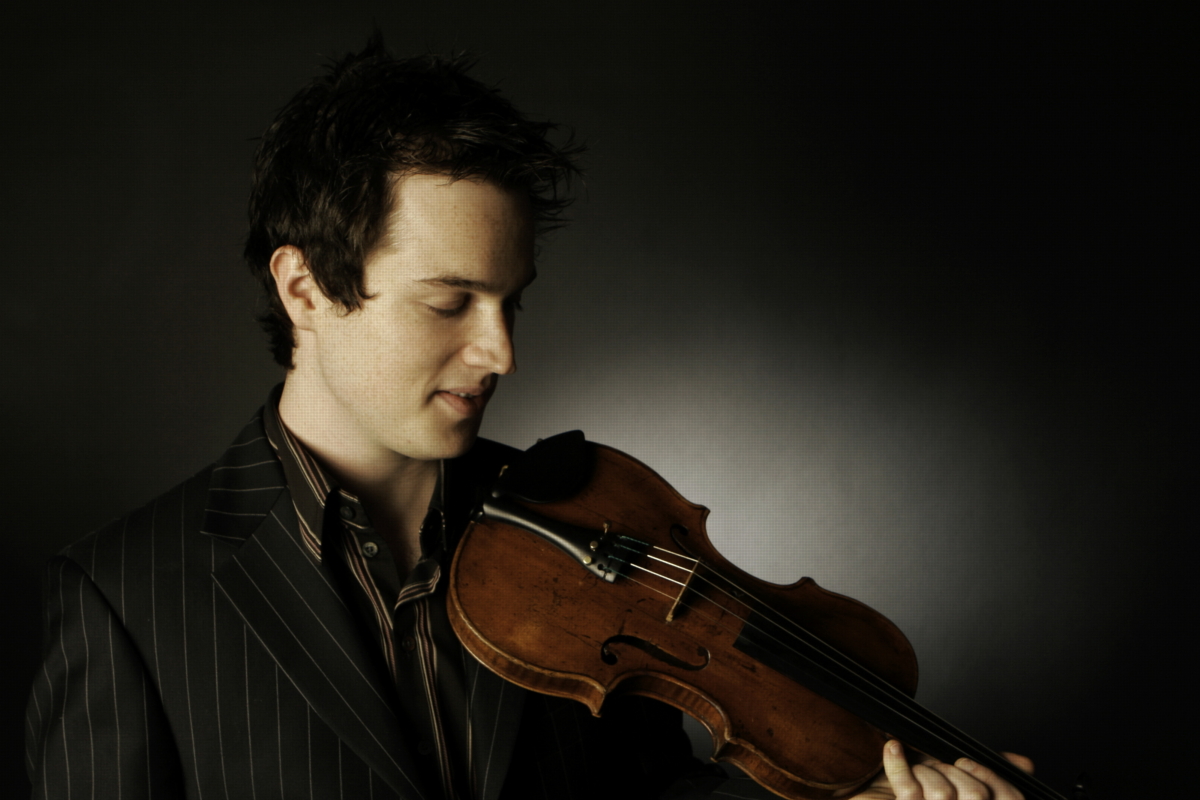Earlier this week, we spoke to Berlin-based violinist Michael Brooks Reid, who will shortly be flying in to perform the solos in the Four Seasons concerti in our next program, Viva Vivaldi!. Michael is also joining MCO Virtuosi on a Victorian/NSW tour of the program stopping in Sale, Horsham, Mildura, Shepparton, Albury & Moonee Ponds.
MCO: Tell us a little bit about your life in Europe as a professional violinist.
MBR: First things first – great music is great music anywhere in the world, and I have done some truly wonderful projects in Australia that I will never forget!
Having said that, for me the greatest part about living in Europe is the variety at my fingertips- in the time that it takes to fly from Melbourne to Sydney, I can fly to Paris, Milan, Vienna, Budapest or London. There is an incredible array of culture and history right on my doorstep. A normal orchestral tour over here might stop in three or four different countries, performing in halls like the Concertgebouw in Amsterdam, the Berlin Philharmonie, London’s Royal Albert Hall or Vienna’s Musikverein. I also have the geographical flexibility to play with orchestras from several different countries within a few weeks! This kind of condensed variety and history makes Europe very special.
But as Peter Allen would say, I still call Australia home!
MCO: As classical music goes, it doesn’t get much more popular than Vivaldi’s Four Seasons. What do you think makes for its enduring appeal?
MBR: Vivaldi is as close to rock’n’roll as classical music gets. It is incredibly eccentric and exciting music, and it’s written to enjoy, without any stuffiness or pomp. I think people really relate to that aspect, and find it a great gateway into classical music. The Four Seasons is probably Vivaldi’s most approachable work, and has been made famous in the mainstream recently by Nigel Kennedy, whose 1989 recording skyrocketed in pop charts around the world. The four short concerti are based on sonnets (possibly written by Vivaldi himself), with the music painting scenes from the text in an extraordinarily vivid way.
MCO: Do you approach a work that has been interpreted many times in a different way to something that’s more unusual or less familiar? If so, how?
MBR: It is impossible to approach a work as popular as The Four Seasons without being influenced in some way by people who have played or recorded it before you. Even without actively listening to recordings, just about everyone has preconceived ideas about how the piece goes.
For me a great aspect of the popularity of the work is the vast pool of interpretations that one has access to – I can listen to a hundred versions of the piece, decide which elements I like and which I don’t, and combine them with my own instinctive ideas to form my interpretation of the piece. As George Bernard Shaw wrote, “Imitation is not just the sincerest form of flattery- it’s the sincerest form of learning.”
I think it is important, however, to offer the audience something personal and new, and not just ‘yet another Four Seasons,’ which can be a danger when performing such a popular piece. To achieve this, at some point in the process I stop listening to recordings, and try to let my own creativity and inspiration take over.
MCO: Is there someone whose Vivaldi playing you particularly admire?
MBR: Nigel Kennedy’s recording with the English Chamber Orchestra was one of my parents’ all time favourite albums, so I listened to that a lot throughout my early years. I think the recording characterises the ‘music for the people’ spirit brilliantly. I am now finding more myself drawn to recordings from soloists like Fabio Biondi and Giuliano Carmignola, performing with Italian baroque ensembles on pure gut strings. There is something that only an Italian can bring to this crazy music!

